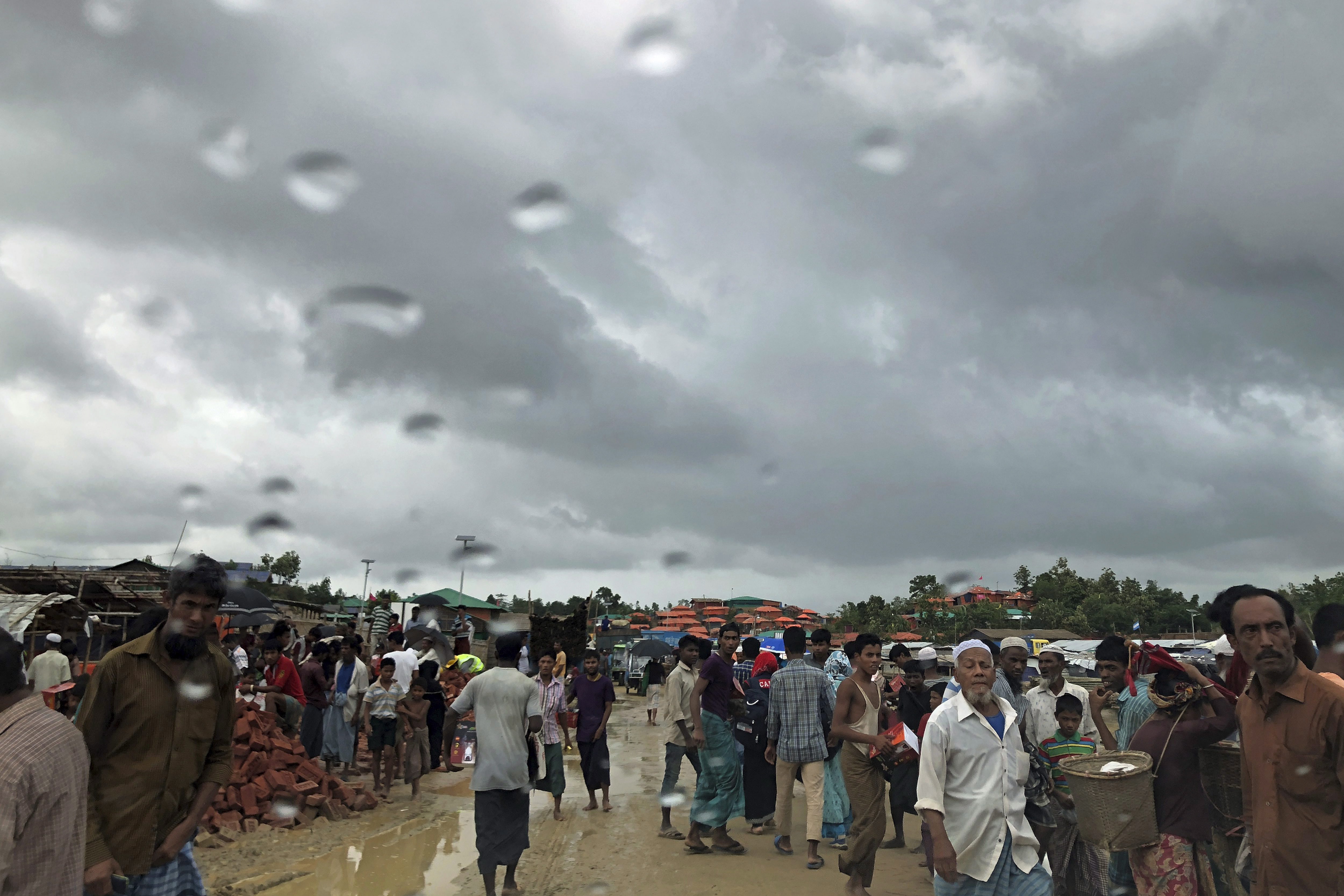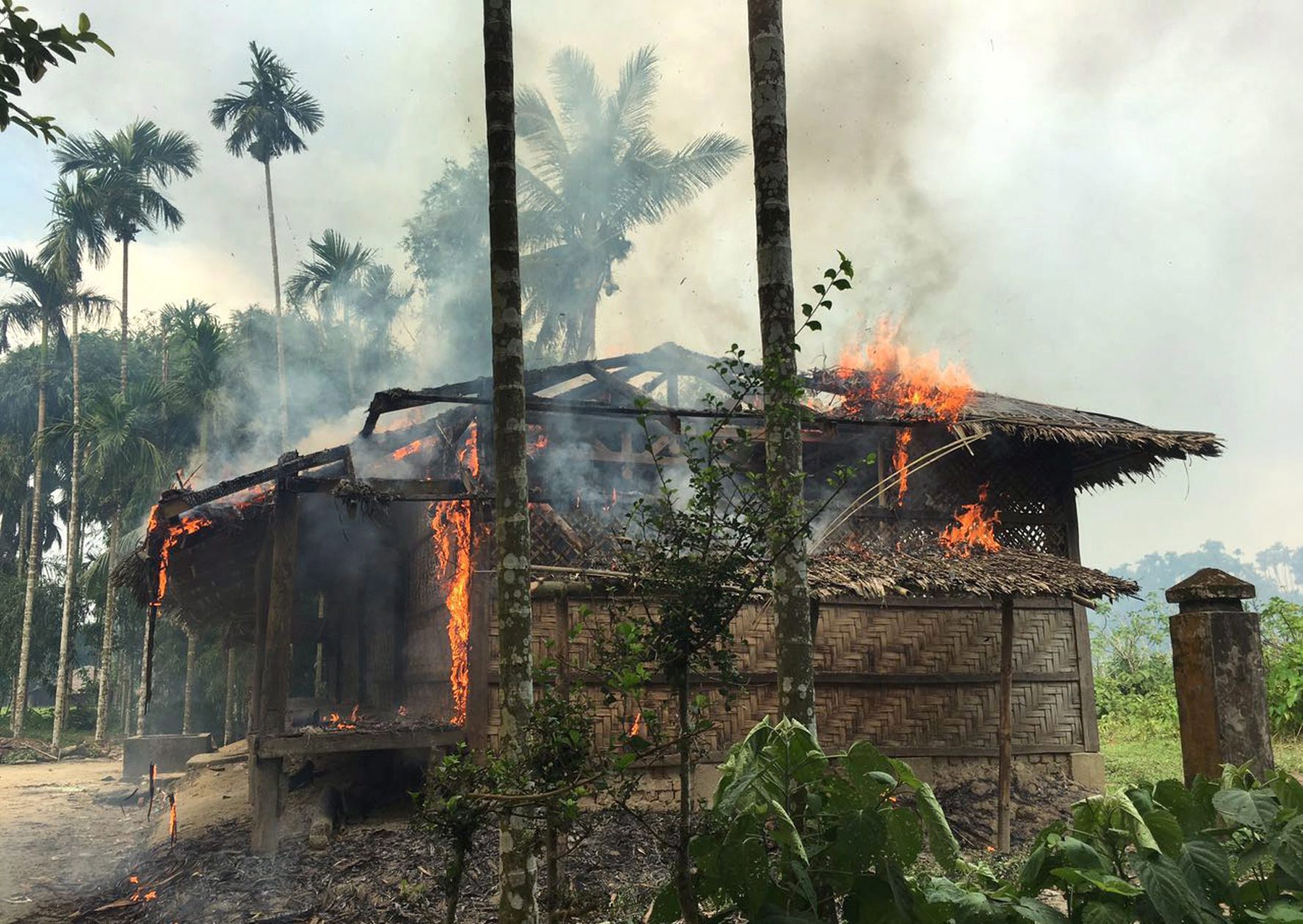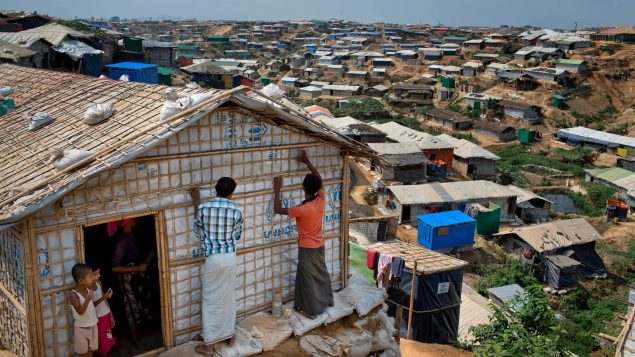‘A highly orchestrated, systematic attack’
A comprehensive report by Amnesty International details crimes against humanity committed by Myanmar’s military against the Rohingya population, and says top military brass must face justice. The crimes include murder, rape, torture, burning and forced starvation which the report says was “part of a highly orchestrated, systematic attack on the Rohingya population.” Atrocities and the burning of many villages caused over 700,000 people to flee Myanmar and seek refuge in neighbouring Bangladesh.
Evidence shows atrocities were planned, says Wells
In their defence, Myanmar officials say they had to respond to an attack on them by Rohingya militants on August 25, 2017. But Amnesty’s Matthew Wells says the violence began before that. “Serious crimes were being committed even before this. We have now documented in detail how Rohingya men and boys were often rounded up, at times en masse, in the weeks before the attacks. They were brought to…often informal detention sites and there, many of them were tortured…
“This was to try to extract confessions…to force people to provide information about the armed group. People were only released if they paid extortionate sums of money.”

Matthew Wells says Rohingya women and girls were gang raped in order to instil fear and make them leave.

By June 26, 2018 monsoon rains had arrived at Jamtolin refugee camp in Bangladesh making life for Rohingya refugees more miserable. (Wone Maye-E/AP Photo)
Notorious military units were poised to strike
Wells says that prior to the attacks, the military moved in two specific units that Amnesty had previously implicated in war crimes in another part of the country. The units had a reputation of brutality against ethnic minorities. “After these attacks happened, they did what they have this long reputation of doing and that is punishing the Rohingya population as a whole for the attacks that took place, attacking men and women, children and the elderly, and often entire villages,” says Wells.
‘Stop playing politics’ says Amnesty
He applauds Canada which sent a special envoy to document the atrocities and, this week, imposed sanctions against seven Myanmar military. Six of them are among the 13 officials that Amnesty names in its own report which includes Myanmar’s commander-in-chief. The group wants Canada and the international community to go further.
It is asking that the United Nations Security Council “stop playing politics and urgently refer the situation in Myanmar to the International Criminal Court.” It also wants a comprehensive arms embargo on Myanmar and targeted financial sanctions against senior officials responsible for the crimes.
Wells asks if such action it not taken, “it begs the question: what will it take for the international community to take justice seriously?”

Thousands of homes in Rakhine state were burned down by Myanmar security forces and allied mobs. (AP Photo/Sept. 7, 2017)







For reasons beyond our control, and for an undetermined period of time, our comment section is now closed. However, our social networks remain open to your contributions.